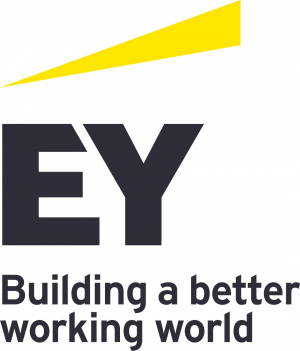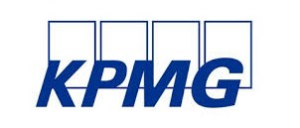How to master the art of giving feedback
21.07.2022Company: Hays Czech Republic s.r.o.
Being great at giving and receiving feedback speeds your development, accelerates the development of the people you interact with, and builds trust in all those relationships, making you more influential with others (whether those others are across the C-suite or around the dinner table). And the first step to improving your feedback practice is to work on receiving it well, which you can read more on here.
Feedback as influencing
In the same way that the feedback you receive needs to be heard to be effective, the feedback you give also has to be heard to be effective. The difference is that when you are receiving feedback you control whether the listening happens. When you’re giving feedback, you don’t. While it would be nice if others routinely paid full attention to your pearls of wisdom and judged them solely on the merits of their content, in the real world your ability to make your feedback as influential and motivating as possible significantly impacts whether your feedback is actually listened to.
This is an important distinction because thinking of giving feedback as an act of influencing helps us get that, to be effective, the feedback we give needs to be as easy to hear as possible.
10 principles of best practice giving feedback
- It’s regular, frequent and ongoing: Do it all the time, with everybody, about everything;
- It’s sincere and honest: your reputation depends on you being straight with people;
- It includes an example: citing a specific behaviour that you observed allows the receiver to place your feedback in context, making it more understandable and therefore more likely to be acted upon;
- It describes the benefits or consequences of the behaviour: hearing the impact the behaviour had gets the receiver to understand why you’re giving them this feedback, so it makes sense;
- It’s timely: make sure to share your feedback as close to the event as practical;
- It’s owned: make sure it’s clear your feedback is from you. Steer clear of, ‘the organisation wants you to know’;
- It’s concise: there’s frequently an inverse relationship between number of words used and impact. Be impactful.
The above seven principles apply to all feedback. The last three apply to developmental feedback specifically.
- It’s future oriented: make sure to articulate what you want to see going forward rather than what you did not see in the past. Notice the difference between, “Your presentation last week was so long winded. You really lost the audience when you got into the statistics” and “For your next presentation, it would be great to see you focus on the strategy, rather than the detailed statistics to keep the attention of the audience right until the end”;
- It’s not judgemental: make sure to describe the behaviour you observed rather than the person. Notice the difference between: “I was surprised you didn’t take the trash out today, like we had agreed” and “Look at the trash. You are so lazy”;
- It is shared in private: make sure to avoid damaging either the recipient’s self-image and/or the strength of your relationship with them. Make sure to conduct development conversations in private.
The Performance Management Model
A useful way to think about identifying which feedback would be most helpful in which situation is to use the Performance Management Model:

Using this model, feedback can be segmented into three broad categories that correspond with three levels of performance: excellent, acceptable and unacceptable.
1. Recognition feedback
Recognition feedback is your most important motivational tool. You give recognition feedback when you want people to continue their excellent behaviour. Genuinely and authentically catching people doing things right is your single biggest tool for:
- Promoting excellence, for both the receiver and others who hear about it;
- Improving motivation and morale, for both the receiver and others who hear about it;
- Developing your relationships and increasing trust, which builds your ability to influence.
We don’t know if there actually is a silver bullet for leadership, but if there is it’s catching people doing things right and genuinely and authentically recognising them for their excellent performance. Our biggest feedback giving tip for you is to become excellent at noticing excellence!
2. Improvement feedback
Improvement feedback is your most important development tool. You give improvement feedback to acceptable behaviour in order to improve future performance. The critical distinction here is that improvement feedback improves acceptable behaviour. Acceptable means there are good things and less good things in the performance. To have your improvement feedback be as motivating as possible, make sure to share both what was most effective about the performance as well as what could be improved going forward.
3. Confronting
Confronting is your most important expectation setting tool. You confront to stop the unacceptable behaviour and reset expectations about what future acceptable performance looks like. The past is in the past. Keep clear that the purpose of a confronting conversation is not to extract an apology but to ensure everyone’s on the same page about what the minimum acceptable standard looks like going forward.
An important distinction about confronting is that the more you put off engaging in any needed confronting conversation, the more likely it is you’ll find yourself faced with other situations where you also need to confront. Getting a reputation as someone who engages, respectfully, in necessary confronting conversations to reset expectations significantly reduces the number of such situations that you’ll have to engage in in the future.
Just a quick note, the words ‘performance’ and ‘behaviour’ can be used interchangeably here. Performance is the term normally used in a work context, where behaviour is more often used at home.
The importance of agreeing expectations
As we hope you can see, in order to provide the correct kind of feedback in any given situation, it’s really important to agree clear expectations beforehand.
Within the first hour in our workshops, we make sure to agree a workshop charter. How are we agreeing to be with each other while we’re together? We do this whether it’s a 7-day program across six months, or a single day’s interaction. We agree what we can and can’t do and what we will and won’t do, reducing the likelihood of misperception and dissatisfaction. Not doing this, in our workshops or in any relationship or task, significantly increases the possibility of mismatched expectations and unstated assumptions. Both of which create motivation challenges.
If you’re my boss and you think I’m performing unacceptably while I think I’m performing acceptably, you’ll confront me. But I’m expecting improvement feedback. This can cause significant demotivation, especially if it persists across time.
The bottom line is that agreeing expectations reduces miscommunication and misunderstanding. Making sure to get into the habit of starting every important interaction with some expectation eliciting question is a terrific investment.
Balancing recognition feedback and improvement feedback
Sometimes participants come to our workshops with some ‘best practice’ ratio of recognition feedback to improvement feedback they think they should adhere to. On occasion this can lead to some combination of:
- Withholding improvement feedback because they haven’t met their quota of recognition feedback;
- Giving recognition feedback for acceptable performance;
- Making quota by making up recognition feedback, or giving it for immaterial things, “I am impressed by your choice of shoes today because…’.
All of these behaviours are counterproductive. Giving recognition feedback for acceptable work confuses the receiver and increases the likelihood you’ll continue to get only acceptable performance going forward. Giving recognition feedback inauthentically damages the other person’s trust in your feedback or you, or both. Withholding valuable improvement feedback slows the other person’s development and performance.
Give the appropriate feedback at the appropriate time based on your observations. If you’re giving too much improvement feedback, focus on getting better at noticing excellence. If you’re not giving enough improvement feedback, focus on getting better at noticing how things could be improved.
It’s fine, and valuable, to think about a ‘best practice’ ratio of recognition to improvement feedback but think about it in the context to the lifetime of your relationship with that person, not each individual interaction.
Feedback and relationship life stage
Thinking about where you are in the life stage of the relationship can also be helpful in terms of what to focus on. At the beginning of a relationship, when it’s less established, having a bias towards genuine recognition feedback can be beneficial as a way to accelerate the strengthening of the connection. Once the relationship is robust, with trust established, having a bias towards genuine improvement feedback will speed development and strengthen the relationship further because the receiver gets your commitment to their success.
Hopefully you’ve got by now though, the most important thing with feedback is to do it consistently and frequently – all the time, with everybody, about everything.
Feedback is a big deal, whether in the C-suite or around the dinner table. Being great at giving and receiving feedback accelerates your development, accelerates the development of the important people in your life, and builds trust, making you more influential in all those important relationships.
Want to get better at giving feedback? Read the other blogs in our series:
AUTHOR
MIKE JENNER, WILL HARVEY AND ALISON HOGAN
University of Exeter Business School
Mike Jenner is the founder of in•flu•ence leadership development consulting whose mission is to fundamentally transform the way leadership is learned. Clients are predominantly Fortune 500 companies across technology, telecom, consulting, financial services, FMCG, retail and education sectors. Mike has won the top teaching award at each of the three business schools where he has held academic appointments. He has an MBA from the Harvard Business School and a B.Eng in Production Engineering and Management from the University of Bath.
Will Harvey is Professor of Management and Associate Dean of Research at the University of Exeter Business School. Will has researched and worked with leaders across the world in multiple sectors. Will has a first class BA degree from the University of Durham and an MPhil and PhD from the University of Cambridge.
Alison Hogan, BA, M.Phil. (Oxon), is a Fellow of the University of Exeter Business School, Exeter Centre for Leadership and founder of Anchor Partners, a consultancy specialising in boardroom behaviours, leadership development and organisational change.
Tags: Human Resources |








